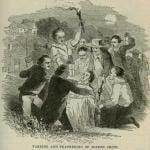
Is It Time to Stop Using Adjectives in News?
How Labels Distort Reporting and Deepen Divides
Not long ago, journalism professors taught five simple questions: who, what, when, where, and how. The point was to tell the story, not to guide the reader with words that hinted at judgment. But today, when bad things happen, reporting and commentary often lean on adjectives—those labels that do more than describe. They shape perception, and they deepen divides.
When Tragedy Strikes: The Case of Camp Mystic

The drowning deaths at Camp Mystic made this painfully clear. I had degrees of separation from families directly impacted, and like many, I felt overwhelmingly sad by the enormity of their loss. But as the news spread, things went quickly wrong.
Instead of taking a moment to feel compassion and sympathy, too many voices rushed to call the camp “white only,” “conservative Christian,” or “MAGA Christian.” Social media soon filled with noise: false obituaries, hoaxes about the girls, and harsh commentary that felt not only wrong but judgmental. At times, there was even an element of glee, as if some found satisfaction in mocking tragedy.
What Summer Camp Really Represents

Camp Mystic is, at its core, a place where young girls come together each summer to sing, swim, and form friendships. Hearing of the tragedy, I immediately pictured my daughter, who spent summers at a camp in West Virginia. I would pick her up each year—dirty, happy, singing new songs all the way home. That is what camp is: innocence, laughter, shared memories. To cover this annual tradition in children’s lives with political adjectives is to lose sight of what was truly lost.
From Meaning to Classifying Grief
It is human nature to search for meaning after catastrophic events. We all want to make sense of grief. But what we see now is not meaning—it is classification. Authors of posts and articles ask that we view tragedy through the lens of labels. We are scolded for mourning one loss if we did not mourn another. In this climate, compassion becomes conditional, and grief becomes ammunition.













